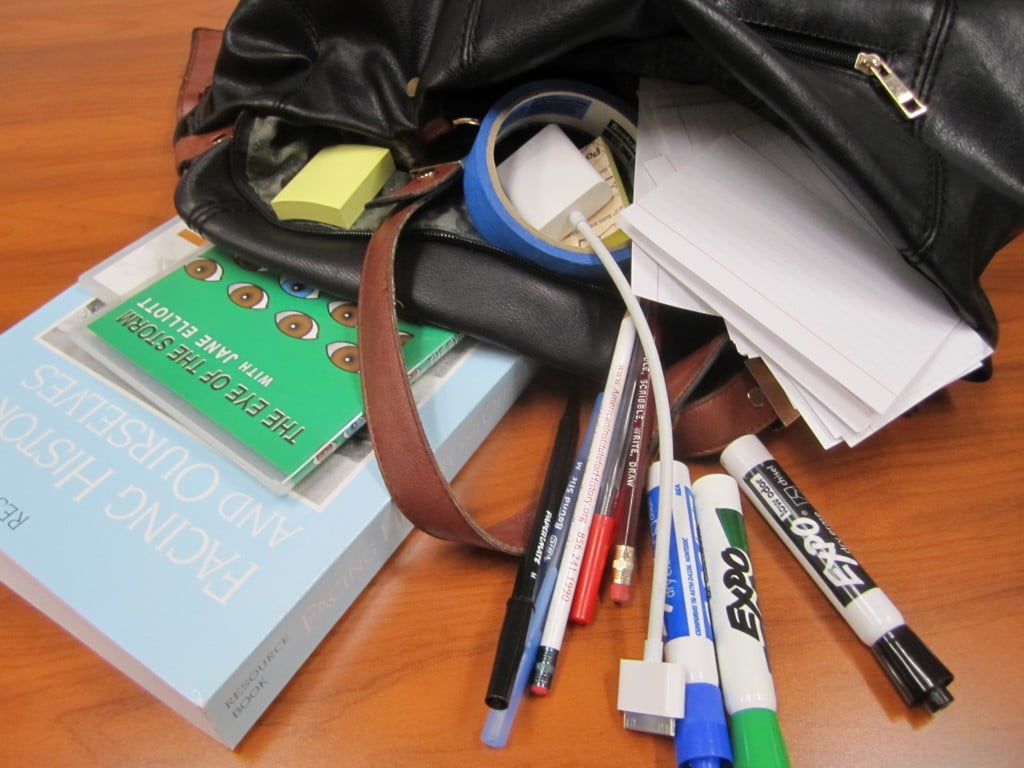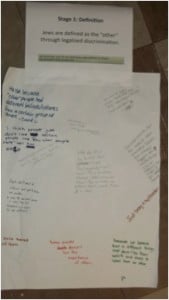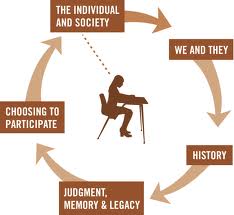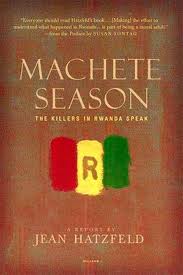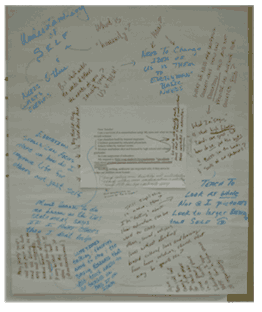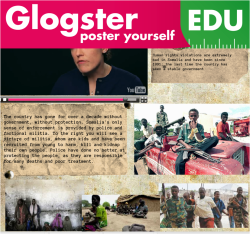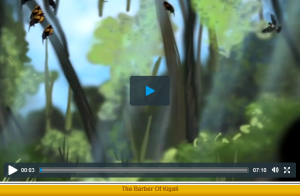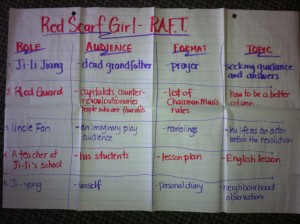A familiar feeling is in the air as the Labour Day long weekend approaches. It might be hard to put our finger on if it wasn’t such an important part of such a large portion of our lives; school. The first day of school is one filled with excitement, promise, and expectation.
As our students arrive in our classrooms, we need to be ready to facilitate the creation of a safe and open learning environment. That first day, and those first few weeks, set the tone for the rest of the year.
What’s in YOUR bag this year as your students meet you back in the classroom? What tools, strategies, lessons are your “go-to” items to help you engage, inspire, and push your students to new heights?
Read More
Topics:
Back-To-School,
Strategies,
Lesson Ideas
We know that it's not easy to teach about the Holocaust and genocide. For many the topic is very difficult and many students cannot wrap their heads around the scope and magnitude of how these mass murders could occur, particularly about the idea of how an entire nation could allow horrific events like this to happen. Creating that safe, caring classroom is essential in being able to have these difficult lessons. In a middle school classroom, these are essential conversations, as students at this age care and have a strong sense of fairness and justice.
Read More
Topics:
Facing History Resources,
History,
Regent Park,
Middle School,
We and They,
Strategies,
Lesson Ideas,
Holocaust and Human Behaviour,
Social Justice
As you may have read in other blogs, the “Stand Up, Speak Out” event was an incredible evening of sharing and community. For me it served to exemplify, and personify, the Scope and Sequence of Facing History and Ourselves. On that evening, half a dozen of my students took the stage along with students from three other southern Ontario schools to perform their spoken word pieces. The performances were broken down into the five steps of the Facing History Scope and Sequence:
Read More
Topics:
Choosing to Participate,
Facing History Resources,
Identity,
History,
Urban Education,
project,
We and They,
Strategies,
Culturally Responsive and Relevant Pedagogy,
genocide,
legacy,
Genocide and Crimes Against Humanities Course,
Holocaust and Human Behaviour,
CHG,
reflection
Regent Park. This is where I teach. Originally, this east end Toronto neighbourhood was a planned garden community, with a mixture of mid rise and high rise rental apartments; originally, a place meant for parents to raise children. What has happened over 60 years in Regent Park is that it has become isolated, closed off from the surrounding city, a place where poor and new immigrants have made homes. The community has had its share of issues common to many big city neighbourhoods such as drugs, gangs and crime, but Regent Park is not a community made up of big city issues, it’s a community made up of diverse people!
Read More
Topics:
Urban Education,
Strategies
After a year of learning about Genocide and Crimes Against Humanity, students gravitate towards complex and profound questions that are increasingly difficult to answer. In a setting that involves teaching at-risk youth, this type of engagement can be frustratingly elusive. The lesson (content wise) that I will share with you today is one that should not stand alone. This took place in class after having done 3 case studies, including Rwanda, and a unit on concepts of Justice and Memorial. I found that this lesson was very successful at engaging students of all stripes through particular stories of perpetrators to try to gain a better understanding of universal questions of guilt, responsibility, reconciliation, and justice.
Read More
Topics:
Facing History Resources,
History,
Urban Education,
Strategies,
genocide,
Genocide and Crimes Against Humanities Course,
Lesson Ideas,
big paper,
CHG
I have worked at an alternative school in Scarborough (Toronto’s east end) with students that are 18-20 years of age for the past seven years. These students represent some of the most disengaged and difficult to reach students in Scarborough (if they were not, they would never arrive at my school). In that time I have come to learn: one, the term ‘Inner City Schools’ is an awkward designation given that in Toronto, at least, most of our ‘at-risk’ students are in the inner suburbs, not the inner city; and two, I have found no magic teaching strategy to solve the dilemma of reaching these students (if there was, I suppose, there would be no need for the on-going discussion and my school would not exist). Moreover, ‘Inner City School’ students are, like every other, a diverse group, and an approach that may work for one student may not work for another.
Read More
Topics:
Urban Education,
Strategies
I was recently very fortunate to be invited to join a trial UDHR Glogster project with Facing History (see samples of student work). The purpose of the project was to have students complete a project about the Universal Declaration of Human Rights using Glogster.
In this project, we, the teachers, were given tutorials in the application of Glogster.
Read More
Topics:
Technology,
Strategies,
Glogster,
Lesson Ideas
The Facing History resource “Pigeon” demonstrates the impact a short film can have. Set amid the tension of occupied Europe during World War II, it is an example of the power an individual has to make a difference, if they choose to do so. A viral video is a video that results from online distribution and sharing, an excellent route to engaging our students. Finding short videos online is, therefore, a powerful teaching strategy.
Video clips are accessible to many learning styles, and of particular value when teaching the applied and essential level student. As ‘clips’, they are brief, thus benefiting shorter attention spans and working well in the structure of the 3-part lesson for the 75 minute classroom. They are easily shared if a student is absent (unlike a film) and easily re-watched (either individually or collectively) without generating a great burden on classroom time, which is so precious. And they play to the sensibilities of the digital generation (which in turn allows us as teachers to create the pretense to a shared sense thereof).
Read More
Topics:
Facing History Resources,
videos,
Strategies,
Lesson Ideas
One of the challenges many teachers experience is trying to meet the needs of their diverse student population in their respective classes. Differentiated instructions strategies (D.I.) enables teachers to better meet these varied needs and in turn enables students to be successful because their needs are met at their level of readiness, interests and learning styles.
Read More
Topics:
History,
Middle School,
Strategies,
Lesson Ideas,
English Classroom,
Literature
I recently completed a Guidance AQ with a heavy focus on counselling methodologies. In one session we previewed Solution Focused Counselling and in another Bereavement Counselling was the focus. Whereas Solution Focused Counselling relies heavily on the Active Coping Strategy concentrating on Problem Focused Coping including Cognitive Decision Making and Direct Problem Solving and Bereavement Counselling focused on Support Seeking Coping Strategies such as Support for feelings (CCSC & HICuP, 7), in both the importance of teaching coping strategies was highly emphasized. It became clear to me that the need to teach our students effective coping strategies is important (for further on this, see “Eight Important Reasons for Teaching Kids Healthy, Brain-based Coping Skills in School”).
Read More
Topics:
Professional Development,
Strategies

